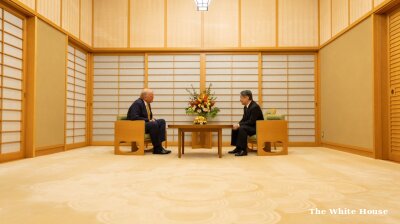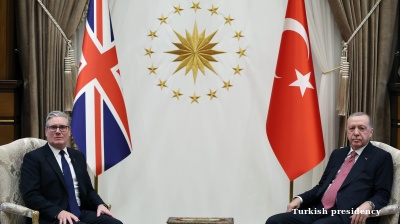The Turkish central bank on July 20 sold 4,002 units of USD/TRY futures contracts due August 2020 along with 32,531 contracts due October 2020 and 1,477 due December 2020 on the Borsa Istanbul Derivatives Market (VIOP), BloombergHT reported.
Each contract was worth $1,000 and the total value equalled $38mn.

T.C. MERKEZ BA / Turkish central bank (@CanEmrahYILMAZ).
The central bank cannot default on the contracts as the seller pays the difference between the figure stated on the contract and the USD/TRY rate to the holder of the contract at maturity in Turkish lira.
No FX transactions occur between the sellers and the buyers of the contracts.
On August 31, 2018, following the Turkish currency crisis earlier in the month, the central bank entered into shorting futures contracts at the VIOP.
It shorted a total of $6bn of contracts within 2019 and all contracts were closed in December, @e507, a prominent Twitter account providing insights into the Turkish markets, observed.
BloombergHT outlined how the central bank’s $55bn of open swap stock reached 61% of its $91bn worth of gross international reserves, $50bn of FX and $41bn of gold, as of end-May, according to the latest available data.

State lenders’ net FX deficit, meanwhile, reached $9.3bn as of July 10.
While the central bank and state lenders’ short FX position is booming, USD/TRY volatility has fallen to interestingly low levels for a currency that is officially subject to a floating exchange rate regime.

USD/TRY 1-month historical volatility (BloombergHT).
News

Kyrgyzstan bans three media titles as “extremist organisations”
Populist-nationalist president Sadyr Japarov, due to meet Donald Trump next week, denies introducing authoritarian controls.

Lula says Trump assured him of trade accord as US explores Brazil rare earths ties
Brazilian President Lula voiced optimism that his country will secure a trade agreement with the US following talks with President Trump, as Washington simultaneously stepped up engagement with Brazilian mining executives to discuss rare earths.

Bulgaria signs landmark deal with Rheinmetall to build ammunition plant
Investment reflects Bulgaria’s growing role in Europe’s rearmament drive and Nato’s efforts to strengthen regional defence supply chains and cut reliance on external suppliers.

US-China trade talks deliver breakthrough as markets rally ahead of Trump-Xi meeting at APEC
How and if China will react to a US-Japan rare earths deal remains to be seen but Beijing has said it will suspend its restrictions on rare earth metal exports in what is a move likely to ease pressure on the US tech and defence sectors.




